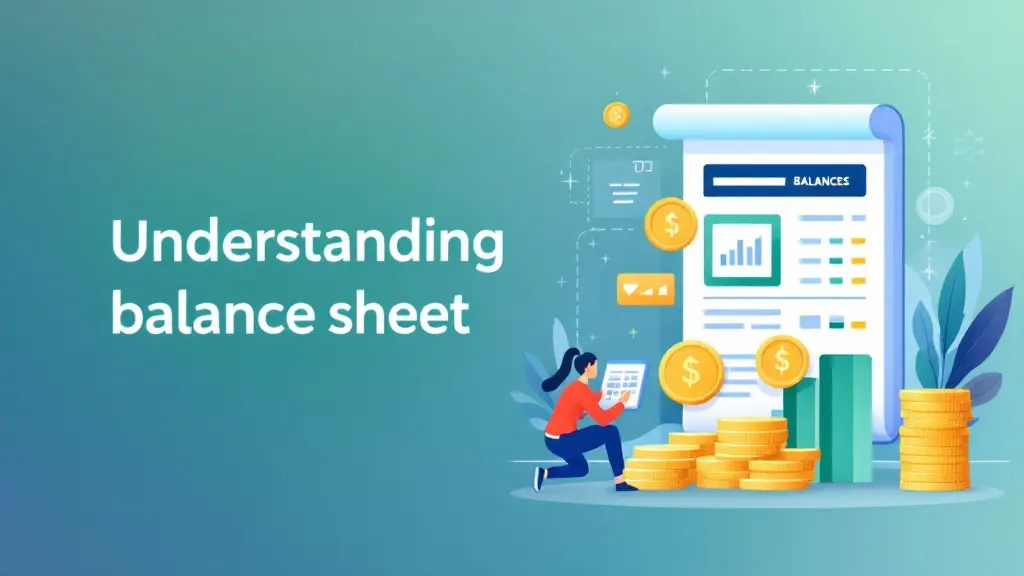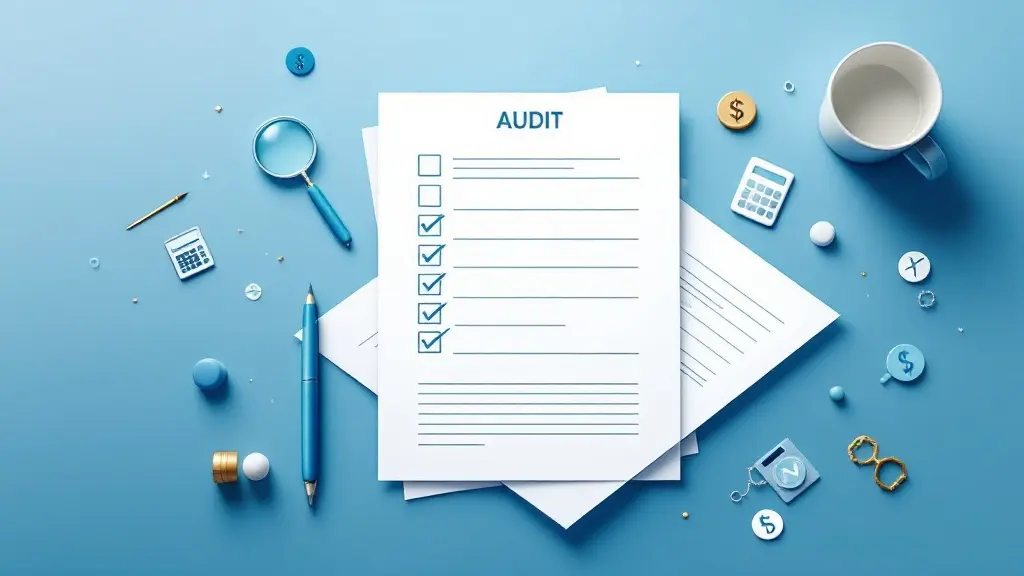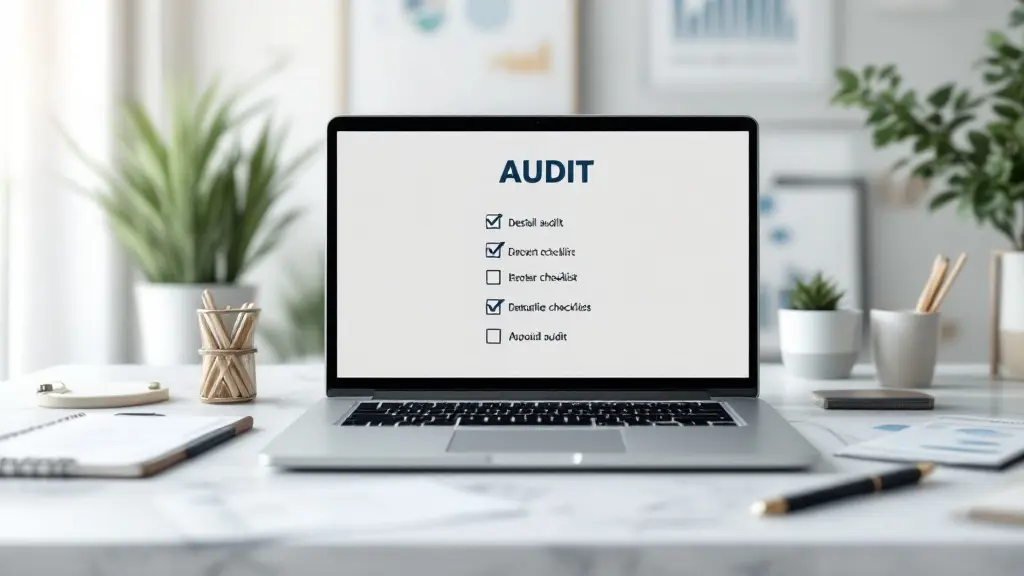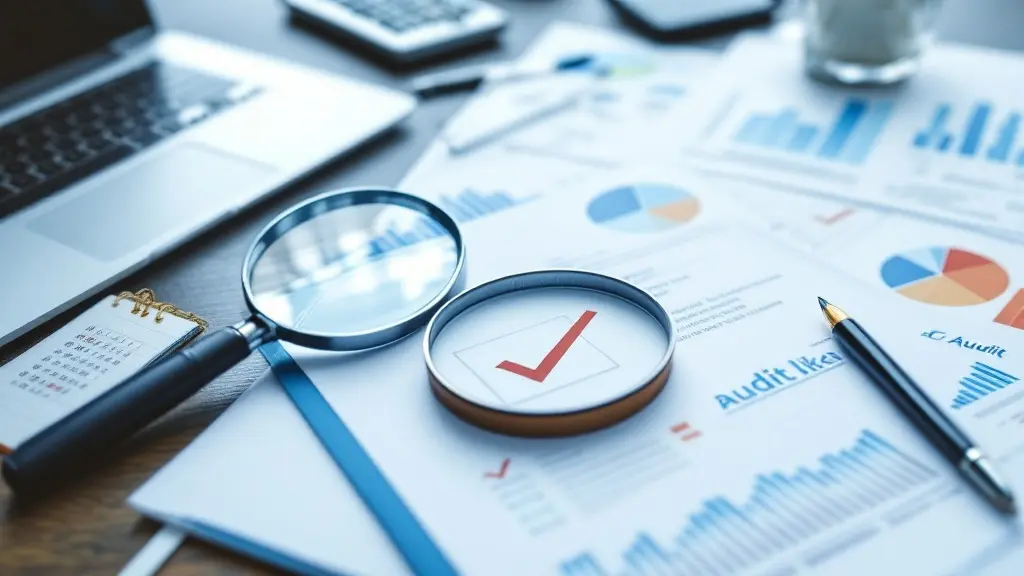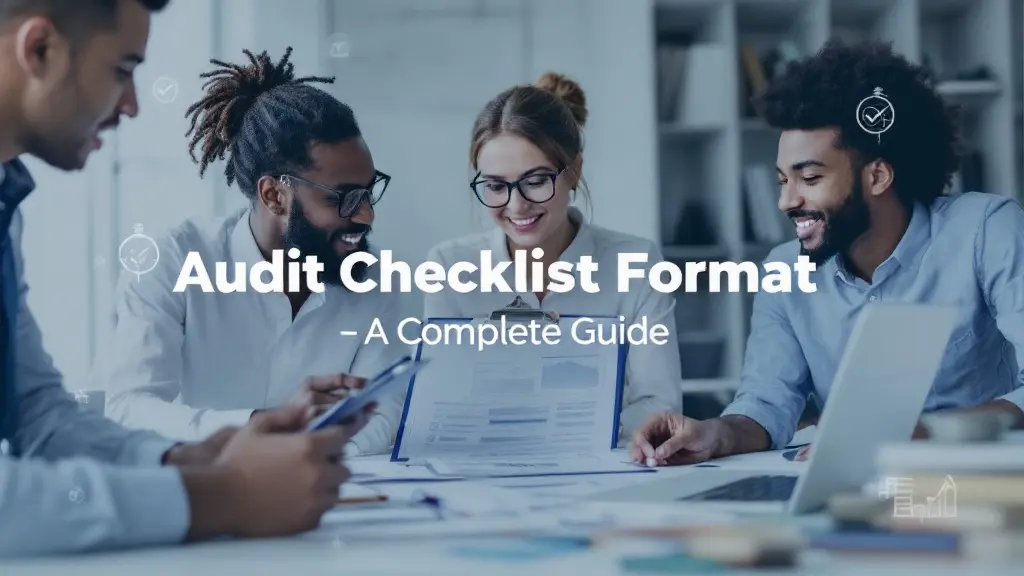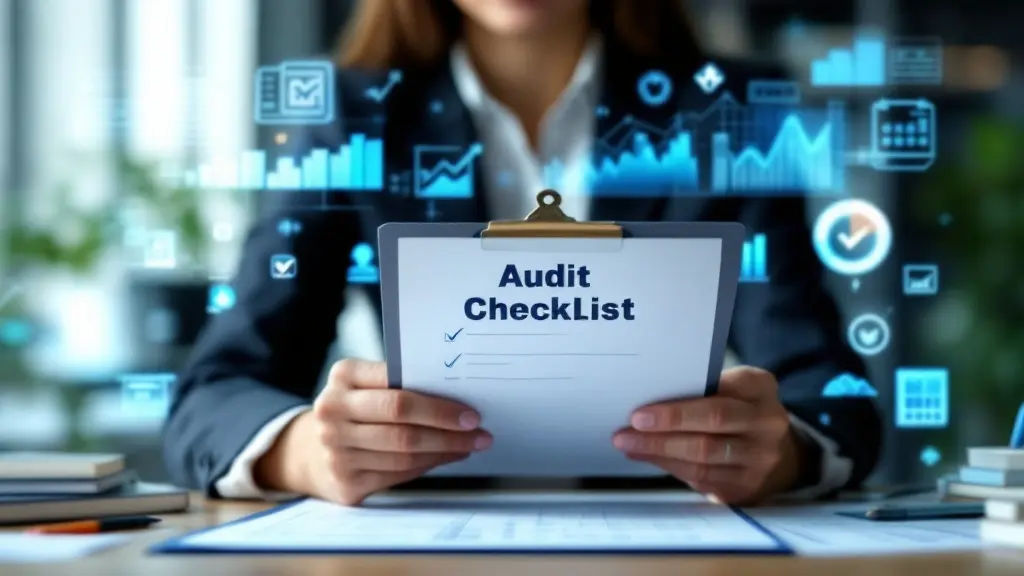How to Find a Good Accountant for My Business
Table of Contents
Most Read
[fusion_dropcap class="fusion-content-tb-dropcap"]W[/fusion_dropcap]hen it comes to running a successful business, knowing how to find a good accountant for my business is not just important—it's essential. A well-chosen accountant can be the backbone of your financial strategy, offering critical insights and helping you navigate the complex world of taxes and regulations. Did you know that businesses with skilled accounting professionals are more likely to save significant amounts on taxes and make informed financial decisions? In a rapidly changing economic landscape, having an accountant who understands your specific needs can lead to improved cash flow, strategic planning, and ultimately, greater profitability. In this blog post, we will explore the steps to finding the right accountant to support your business growth and success.
Understanding the Importance of a Good Accountant for Your Business
A competent accountant can play a crucial role in the success and sustainability of your business. From managing finances to ensuring compliance with laws and regulations, the right accountant can provide invaluable insights that can lead to increased profitability and savings.
The Role of an Accountant
Accountants are more than just number crunchers. They serve various functions, including:
-
Preparing and reviewing financial statements
-
Managing tax filings
-
Offering financial advice
-
Assisting with budgeting and forecasting
-
Ensuring compliance with legislation
Benefits of Having a Skilled Accountant
Investing time in learning how to find a good accountant for my business can yield significant benefits:
-
Time Savings: Delegate time-consuming tasks to focus on core business activities.
-
Financial Insights: Receive expert advice on cost reduction and improving financial performance.
-
Compliance Confidence: Stay compliant with tax regulations, reducing the risk of fines or penalties.
-
Strategic Planning: Gain assistance in long-term financial planning and investments.
Identifying Your Business Needs
Before diving into the search, it’s essential to identify your specific accounting needs. Different businesses have varying requirements, and recognizing these can help you narrow down your choices.
Types of Accounting Services Required
Consider the following accounting services based on your business size and complexity:
-
Bookkeeping
-
Tax Preparation and Planning
-
Payroll Services
-
Financial Consulting
-
Forensic Accounting
Specific Industry Knowledge Required
Depending on your industry, you may require an accountant with specialized knowledge. For example:
-
Retail businesses might need expertise in inventory management.
-
Non-profits often require knowledge of fund accounting.
-
Manufacturing companies may benefit from understanding cost accounting.
Understanding your unique requirements can significantly enhance your search for the right accountant. For more information on best accounting practices, check out Intuit.
Researching Potential Accountants
Once you have a clear understanding of your needs, it is time to start the research phase. Knowing how to find a good accountant for my business involves leveraging various resources.
Where to Look for Accountants
Here are a few effective ways to begin your search:
-
Online Directories: Websites like LinkedIn or Yelp provide reviews and ratings of local accountants.
-
Professional Associations: Organizations like the AICPA (American Institute of CPAs) have directories for certified professionals.
-
Networking Events: Attend local business meetups to enhance your connections and ask for recommendations.
Utilizing Online Resources and Directories
Ensure you're taking full advantage of online tools. Many platforms allow you to compare services, views, and pricing. This can offer you a comprehensive understanding of what's available.
Asking for Referrals from Trusted Networks
Word-of-mouth referrals from other business owners can provide invaluable leads. Don't hesitate to ask trusted sources within your professional network for recommendations.
With a well-defined search approach and understanding of your business needs, you'll be on the right track to finding the ideal accountant.
Evaluating Qualifications and Experience
When learning how to find a good accountant for my business, it's crucial to evaluate their qualifications and experience carefully. The right accountant should not only have the necessary educational background but also relevant industry experience that aligns with your business needs.
Checking Credentials and Certifications
To ensure that your prospective accountant is qualified, here are some key credentials to look for:
-
Certified Public Accountant (CPA): A CPA designation is a strong indicator of professional competence.
-
Enrolled Agent (EA): EAs specialize in tax matters and have extensive knowledge of IRS regulations.
-
Chartered Accountant (CA): Recognized internationally, CAs hold similar credibility as CPAs.
It's important to confirm that the accountant holds valid certifications relevant to your jurisdiction.
Understanding Relevant Experience in Your Industry
Beyond credentials, experience in your specific industry can significantly affect the quality of service provided. Here are some factors to consider:
-
Industry-Specific Knowledge: Familiarity with laws and regulations specific to your business sector.
-
Track Record: Ask about their experience with businesses of similar size and complexity.
-
Specialized Services: Inquire whether they have experience handling unique business situations related to your industry, such as audits or regulatory compliance.
Having an accountant who understands the unique challenges and opportunities within your sector can help you navigate financial decisions more effectively.
Assessing Compatibility and Communication
Finding the right accountant isn't just about qualifications; it's also about compatibility. A successful partnership relies on clear communication and a mutual understanding of expectations.
Importance of a Good Professional Fit
An accountant should align with your company's culture and values, fostering a relationship of trust and collaboration. Consider the following elements for evaluating compatibility:
-
Communication Style: Ensure their communication style matches yours; open lines of communication are critical.
-
Business Philosophy: Their approach to problem-solving and planning should resonate with your business strategy.
-
Availability: Consider their response time and availability for consultations.
Evaluating Communication Styles and Responsiveness
Strong communication plays a vital role in the effectiveness of the accountant-client relationship. Here are some ways to assess this:
-
Schedule initial meetings to gauge responsiveness and willingness to answer your questions.
-
Pay attention to how well they articulate complex concepts in a way that you understand.
-
Ensure they provide clear timelines for projects and meet deadlines.
Discussing Fees and Service Packages Upfront
Before making any decisions, it’s essential to have transparent discussions about fees. Here’s what to cover:
-
Fee Structure: Clarify whether they charge hourly, per project, or through monthly retainers.
-
Scope of Services: Understand what services are included in their fee and any additional costs you might incur.
-
Value: Evaluate whether their fees align with the services provided and the value they can deliver.
Establishing strong communication and understanding fee structures upfront while learning how to find a good accountant for my business can lead to a successful and productive partnership. For more insights on selecting the right financial partner, visit Deloitte.
Conducting Interviews
Once you have shortlisted potential accountants, conducting interviews is a critical step in determining how to find a good accountant for my business. This process enables you to gauge their expertise, approach, and compatibility with your business needs.
Key Questions to Ask Potential Accountants
During the interview, ensure you cover essential topics to assess their suitability:
-
Experience with Similar Businesses:
-
How many years of experience do you have in this industry?
-
Can you provide examples of challenges faced and how you resolved them?
-
-
Approach to Tax Planning:
-
What strategies do you implement to minimize tax liabilities?
-
How do you keep up with changes in tax laws and regulations?
-
-
Software and Tools Used:
-
What accounting software do you prefer and why?
-
How do you ensure data security and privacy?
-
How to Assess Their Problem-Solving Abilities
Asking situational questions can help you understand how they think on their feet. Consider including scenarios such as:
-
"If I were facing cash flow issues, what steps would you take to advise me?"
-
"How would you approach a financial audit if it were to arise unexpectedly?"
These questions can reveal their critical thinking skills and adaptability in various situations.
Ensuring They Stay Updated with Tax Laws and Regulations
Competent accountants continuously educate themselves on changes in financial regulations. To assess this:
-
Ask about any recent tax changes they have adapted to for their clients.
-
Inquire whether they attend relevant seminars or training sessions to stay informed.
Their level of engagement in professional development can indicate their commitment to providing effective accounting services.
Making the Final Decision
After your interviews, it's time to make the final decision regarding how to find a good accountant for my business. This decision should be made thoughtfully, considering both pros and cons.
Weighing Pros and Cons of Your Top Candidates
Create a comparison chart of key attributes for your leading candidates, including:
-
Qualifications and certifications
-
Relevant industry experience
-
Compatibility with your business culture
-
Fees and services offered
This comparison can help bring clarity to your decision-making process.
Trust Your Instincts about Personality Fit
Beyond qualifications and expertise, trust your instincts regarding the accountant's personality. A good accountant should not only be technically proficient but also approachable and easy to communicate with. The right fit can foster a long-term professional relationship.
Considering the Long-Term Partnership
Choosing an accountant is not just about immediate needs. Consider the potential for growth and partnership:
-
Can they scale with your business as it expands?
-
Are they open to evolving their services as your needs change?
Selecting an accountant who can support you long-term will ensure sustainable financial health for your business. For more strategies on building strong business partnerships, you can visit KPMG.
Establishing a Strong Working Relationship
After choosing an accountant, fostering a strong working relationship is essential for achieving the best outcomes for your business. Knowing how to find a good accountant for my business doesn't end with hiring; the ongoing partnership is equally important.
Setting Expectations from the Start
To ensure a smooth collaboration, you must establish clear expectations from the beginning. Discuss the following:
-
Roles and Responsibilities: Clarify who will be responsible for different tasks. For instance, will your accountant handle payroll and tax preparation, or will you oversee those elements?
-
Communication Frequency: Set a regular schedule for updates and consultations, whether it’s monthly, quarterly, or as needed. Consistent communication can prevent misunderstandings and keep both parties informed.
-
Reporting Requirements: Discuss the type of financial reports you expect and the frequency of delivery. This could include profit and loss statements, cash flow analyses, and budget comparisons.
Importance of Regular Communication
Effective communication can significantly influence the success of your relationship with your accountant. Consider the following strategies to enhance communication:
-
Use Collaborative Tools: Implement project management or accounting software that allows for real-time sharing of financial data and documents.
-
Schedule Regular Check-ins: Set up periodic meetings to discuss progress, address concerns, and adjust strategies as necessary.
-
Be Open and Honest: Establish an atmosphere where you can openly discuss your business goals, financial challenges, and any adjustments in services needed.
Periodic Reviews of Services and Performance
As your business evolves, it’s crucial to periodically review the services your accountant offers and evaluate their performance. You might consider the following:
-
Annual Review Meetings: Schedule annual meetings to assess your financial performance and discuss any new needs that have arisen during the year.
-
Performance Metrics: Establish criteria to measure the effectiveness of your accountant’s services—this might include accuracy, responsiveness, and overall value provided.
-
Solicit Feedback: Encourage open dialogue about any changes or improvements that could be made to enhance your business relationship.
A solid working relationship can optimize the value you gain from the accountant and contribute significantly to your business success. For further insights on maintaining effective professional relationships, you can reference PwC.
Ongoing Evaluation of Your Accountant
As your business grows and changes, it's important to periodically evaluate your accountant's performance and alignment with your evolving needs. Understanding how to find a good accountant for my business continues beyond the initial hiring; it also involves assessing whether they meet your ongoing expectations.
Signs of a Good Accountant at Work
Recognizing the signs that your accountant is performing well can help you identify the value they provide. Look for:
-
Proactive Advice: A good accountant should offer suggestions for improving financial health and tax efficiency.
-
Timely Reporting: You should receive financial reports and updates on time, helping you make informed business decisions.
-
Responsiveness: Quick and helpful responses to your queries indicate a commitment to your business's success.
-
Strategic Insights: Your accountant should not just focus on past performance but also provide recommendations for future growth.
When to Reconsider Your Choice if Needed
If you notice any of the following red flags, it might be time to reevaluate your accountant:
-
Consistent Errors: Frequent mistakes in reports or filings can be a sign of lack of attention to detail or expertise.
-
Poor Communication: Difficulty in getting responses or a lack of regular updates could indicate a disinterest in your account.
-
Limited Knowledge of Changes: If your accountant is not keeping up-to-date with new tax laws and industry trends, it may hinder your financial planning.
Importance of Adaptability in Changing Business Environments
Your business needs may evolve due to market dynamics, regulatory changes, or business scaling. Therefore, it is essential that your accountant can adapt to these changes. Consider the following when evaluating adaptability:
-
Flexibility in Services: Can they adjust their services to accommodate changes in your business model or growth?
-
Understanding of Industry Trends: Are they knowledgeable about emerging trends that could impact your financial landscape?
-
Readiness to Innovate: Look for an accountant who embraces new technology and tools that can streamline processes and provide better insights.
By regularly evaluating your accountant, you can ensure that you maintain a beneficial partnership that supports your business goals. For further reading on maintaining effective accounting practices, consider visiting EY.
Conclusion
Finding the right accountant is a pivotal step in ensuring the financial health and growth of your business. Throughout this guide on how to find a good accountant for my business, we've explored essential factors such as identifying your needs, researching potential candidates, and establishing a productive relationship.
Recap of Key Steps
-
Understand Your Business Needs: Clearly define the accounting services you require, from bookkeeping to tax planning.
-
Research and Evaluate: Utilize various resources to find potential accountants, checking their qualifications and relevant experience.
-
Conduct Comprehensive Interviews: Ask targeted questions to assess their capabilities and approach, ensuring they align with your business philosophy.
-
Set Clear Expectations: Establish roles and communication practices from the beginning to facilitate a smooth collaboration.
-
Regularly Review Performance: Keep evaluating your accountant’s effectiveness and adaptability to ensure they meet your changing needs.
Final Thoughts
Selecting the right accountant is not just about their qualifications but also involves finding someone who understands your business and can offer valuable financial insights. An effective accounting partnership can lead to cost savings, improved decision-making, and overall peace of mind as you focus on growing your business.
For additional insights into effective accounting practices and choosing financial partners, consider visiting Grant Thornton.
Additional Resources for Finding the Right Accountant
As you navigate the journey of finding a good accountant for your business, it's helpful to leverage additional resources that can guide you through the process. These resources provide comprehensive insights and practical tools that can assist in making informed decisions.
Professional Organizations and Associations
Many professional accounting organizations offer resources for businesses looking for accountants. Some notable associations include:
-
American Institute of CPAs (AICPA): Provides a directory of CPA members and various resources on accounting standards.
-
National Association of Accountants (NAA): Offers networking opportunities and information on accounting practices.
-
Financial Planning Association (FPA): Focuses on financial advisors and related services, including tax planning.
Online Reviews and Ratings
Utilizing online platforms can also ease your research. Consider checking:
-
Yelp: Offers reviews and ratings from clients about accounting professionals and firms.
-
Google Reviews: A straightforward way to see local accountants' ratings and overall client satisfaction.
-
LinkedIn: Professionals often share recommendations, providing insights into the reputation of various accountants.
Useful Tools and Software
Some tools can streamline the process of evaluating and managing your accounting needs:
-
Accounting Software: Platforms like QuickBooks and Xero not only help with bookkeeping but can also help you assess the suitability of your accountant based on your unique requirements.
-
Financial Planning Tools: Utilizing platforms like Mint or Personal Capital can provide a broader view of your financial situation, allowing you to discuss more effectively with your accountant.
Educational Resources
Educating yourself about accounting principles and practices can empower you to make better decisions. Consider exploring:
-
Webinars and Online Courses: Platforms like Coursera and Udemy offer various accounting courses tailored to business owners.
-
Books and Articles: Reading about accounting fundamentals can provide a solid foundation for discussions with your accountant.
By taking advantage of these additional resources, you will be well-equipped to successfully navigate the complexities of finding a good accountant for my business. For further insights into accounting trends and best practices, visit BDO.
Common Mistakes to Avoid When Choosing an Accountant
When considering how to find a good accountant for my business, being aware of common pitfalls can save you time, money, and frustration. Here are some mistakes to be mindful of during the selection process.
Focusing Solely on Cost
While budget is an important factor, choosing an accountant based solely on the lowest fees can lead to subpar service. Consider the following:
-
Value Over Price: Evaluate the services offered in relation to their price. An experienced accountant may save you more money in the long run through effective tax strategies.
-
Hidden Costs: Some accountants may have additional fees for services that are not initially disclosed. Ensure you discuss all potential costs upfront.
Not Checking References
Failing to ask for references can result in hiring an accountant who doesn't meet your expectations. Always:
-
Request Client References: Speaking directly to past or current clients can provide insights into the accountant’s reliability and effectiveness.
-
Read Online Reviews: Use platforms like Google and Yelp to gauge feedback from different clients regarding their experiences.
Ignoring Industry Expertise
Every industry has unique accounting needs, and neglecting to check for relevant experience may lead to issues down the line. Make sure to:
-
Identify Industry-Specific Knowledge: Ensure the accountant has a solid understanding of industry regulations and challenges that may affect your business.
-
Assess Experience: Ask about their experience working with businesses similar to yours.
Skipping the Interview Process
Rushing the interview process or skipping it altogether can lead to mismatches between you and your accountant. To mitigate this:
-
Prepare for Interviews: Create a list of essential questions to assess their qualifications, communication style, and approach.
-
Trust Your Gut: Beyond qualifications, consider whether you feel comfortable discussing financial matters with them.
Overlooking Compatibility
Compatibility is crucial for a healthy working relationship. Keep the following in mind:
-
Communication Style: Ensure that their communication style aligns with yours—this includes how they deliver information and their availability.
-
Cultural Fit: An accountant who understands your business culture will likely work more effectively with you.
By avoiding these common mistakes, you can significantly enhance your chances of finding a good accountant for my business. For more tips on making informed financial decisions, check out KPMG.
The Importance of Continuous Learning in Accounting
In the ever-evolving landscape of finance and taxation, understanding how to find a good accountant for my business extends to recognizing the importance of ongoing education and adaptability. A qualified accountant should not only have the right credentials at the time of hiring but also engage in continuous learning to keep up with changes in laws, technology, and best practices.
Staying Updated on Tax Laws and Regulations
Tax laws and accounting standards frequently change, and it’s vital for your accountant to stay informed. Consider these aspects:
-
Regular Training: Accountants should participate in regular training sessions, seminars, or courses to remain current with the latest regulations.
-
Membership in Professional Organizations: Active membership in groups such as the AICPA or local CPA societies often provides access to crucial updates and resources.
-
Subscription to Industry Publications: Reading industry-specific publications helps accountants stay informed about the latest trends and regulatory changes.
Embracing Technology and Accounting Tools
The accounting profession is increasingly intertwined with advanced technology. An accountant should be proficient in using modern accounting software and tools, which can lead to greater efficiency and accuracy. Key technologies include:
-
Cloud Accounting: Utilizing cloud-based software enables real-time monitoring of financial data and improves accessibility for both the accountant and client.
-
Data Analytics Tools: These tools can help accountants derive insights from financial data and make data-driven recommendations tailored to your business needs.
-
Collaborative Platforms: Engaging in platforms that facilitate sharing of documents and communications can streamline workflows.
Encouraging a Culture of Learning
Promote a culture of learning not just for your accountant but within your entire organization. This fosters adaptability and prepares your business to navigate changes effectively. Consider implementing:
-
Internal Workshops: Encourage professional development through workshops focused on finance and accounting trends.
-
Knowledge Sharing: Create a system for sharing insights and updates amongst team members to keep everyone informed.
-
Encouragement of Certification: Support your accountant in pursuing additional certifications, which enhances their skills and can benefit your business.
By understanding the value of ongoing education and adaptability in accounting, you can ensure that your accountant remains a crucial asset to your business, ultimately leading to better financial management. For insights on fostering professional development, you might find valuable resources at Grant Thornton.
What qualifications should I look for in an accountant?
When searching for an accountant, it's important to look for qualifications such as a Certified Public Accountant (CPA) designation, which demonstrates a high level of expertise and professionalism. Additionally, relevant experience in your specific industry can be a significant advantage, as it indicates that the accountant understands the unique financial challenges and regulations that pertain to your business.
How can I assess an accountant's compatibility with my business?
To assess compatibility, consider scheduling an interview to discuss your business needs and gauge their communication style. Ask questions about their approach to problem-solving and financial strategy. A good fit will include an alignment of values, clear communication, and a willingness to adapt to your evolving business circumstances.
What are some warning signs of a bad accountant?
Red flags that indicate an unsuitable accountant may include consistent inaccuracies in financial reports, poor communication or responsiveness, and a lack of familiarity with current tax laws or industry regulations. If you notice such signs, it may be time to reconsider your accountant and seek someone who better meets your needs.
How often should I meet with my accountant?
The frequency of meetings with your accountant depends on your business size and complexity, but generally, it's beneficial to have at least quarterly meetings to review financial performance and adjust strategies as needed. Some businesses may require monthly check-ins, especially during busy tax seasons, to ensure all financial matters are in order.
Can I change accountants if I'm not satisfied with their services?
Yes, you can change accountants if you are not satisfied with their services. It's essential to terminate the relationship professionally and ensure that all necessary records are correctly handed over to your new accountant, allowing for a smooth transition and uninterrupted financial management.
